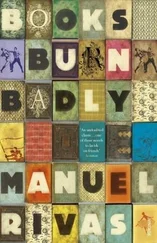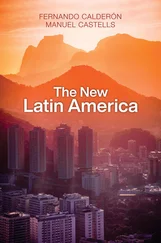Manuel Rivas - The Low Voices
Здесь есть возможность читать онлайн «Manuel Rivas - The Low Voices» весь текст электронной книги совершенно бесплатно (целиком полную версию без сокращений). В некоторых случаях можно слушать аудио, скачать через торрент в формате fb2 и присутствует краткое содержание. Год выпуска: 2016, Издательство: Harvill Secker, Жанр: Современная проза, на английском языке. Описание произведения, (предисловие) а так же отзывы посетителей доступны на портале библиотеки ЛибКат.
- Название:The Low Voices
- Автор:
- Издательство:Harvill Secker
- Жанр:
- Год:2016
- ISBN:нет данных
- Рейтинг книги:5 / 5. Голосов: 1
-
Избранное:Добавить в избранное
- Отзывы:
-
Ваша оценка:
- 100
- 1
- 2
- 3
- 4
- 5
The Low Voices: краткое содержание, описание и аннотация
Предлагаем к чтению аннотацию, описание, краткое содержание или предисловие (зависит от того, что написал сам автор книги «The Low Voices»). Если вы не нашли необходимую информацию о книге — напишите в комментариях, мы постараемся отыскать её.
A brilliant coming-of-age novel from one of Spain’s greatest storytellers,
is a humorous and philosophical take on memory, belonging, and the nature of storytelling itself.
The Low Voices — читать онлайн бесплатно полную книгу (весь текст) целиком
Ниже представлен текст книги, разбитый по страницам. Система сохранения места последней прочитанной страницы, позволяет с удобством читать онлайн бесплатно книгу «The Low Voices», без необходимости каждый раз заново искать на чём Вы остановились. Поставьте закладку, и сможете в любой момент перейти на страницу, на которой закончили чтение.
Интервал:
Закладка:
The normal thing is not to be ‘normal’. The normal thing is to be different. This is what life teaches you when it remembers. There is Farruco, with all the shoes of a lifetime. He wasn’t rich. He worked as a bricklayer’s mate. But he kept everything. Recycled everything. If Castro was as clean as a new pin, it was because Farruco had passed by. He built himself an alternative architecture. A shanty-town architecture. He died, but part of it is still left because it was so well made and coated with naval paint from unfinished pots he collected. So the shanty town had the aesthetics of arks marooned on the mountainside. Though, for me, the greatest spectacle was seeing that row of shoes on a Sunday, from childhood to old age, and the way he polished each pair. There were the soles and heels of the years of life, like the rings in the trunk of the chestnut tree in Souto.

Antonio and the captain of the women’s football team during carnival
Apart from skulls made out of pumpkins, during All Souls children were given chestnuts and the odd sweet. When, years later, Halloween was imported with all its commercial fanfare, I remembered that chestnut tree in Souto, the gravedigger and socialite Antonio, and the carnival troupes. The Murmurers from Elviña. The Skulls from Castro. Sometimes, they would meet up along the way and become the Murmuring Skulls. The Mariner produced a wonderful meco , an effigy that had to be buried. A figure that was well endowed. With an enormous penis, sometimes made of wood. Other times, it was a real turnip taken out of the ground, of portentous size. They once stuck some photos of the tyrant to the effigy and accompanied it on the back of donkeys like Franco’s Moorish Guard. The Priest would lead the way with a censer (this was the libertarian Pepe de Amaro, unless I’m much mistaken). The Pagan was also good at acting out the role of God’s provisional minister. Needless to say, the Widow was a man. In between sobs, (s)he would recite the surrealist litany:
In saecula saeculorum
pig meat bacon is.
At which point, they would chuck the tyrannical effigy into the Monelos river.
They never hurt anybody. But despots don’t have a sense of humour. The members of the troupes were arrested. Mistreated. Some remained in custody. Lent arrived with a sniff of fear. Caused not exactly by the pumpkins or the deceased.
14. The Teacher and the Boxer
WE MUST BOTH have been about six. It was my first day at school, and he came to meet me: Antonio, known as the Red. Reasonably enough. I noticed the flaming colour of his hair. The other children soon formed a ring around us. Yes, this was going to be the first day and the first fight. It had fallen to us. An older child placed a stick on Antonio’s shoulder and then spurred me on, ‘Let’s see if you’re a man and can take it off him!’
I don’t recall at that moment having any particular interest in showing that I was a man. Given the situation I was in, I probably wouldn’t have minded being taken for a more modest creature. But I realised there were times when one’s fate has been written. It wasn’t necessary to move. A shove launched me in the direction of the Red, the stick fell, and us with it, fighting, drawn by a fatal law of gravity. We later became friends. I remember one day, on our way to school, Antonio cheerfully informed me, ‘I’m leaving for England tomorrow.’
He added, ‘And you’re staying here!’
He didn’t say this to hurt me; it was just a statement of fact. He was right. But this annoyed me. There was always somebody emigrating. Why leave like this, one by one, and not all of us together?
On the subject of emigration, we always talk about the nostalgia of the one who leaves and not the one who stays at home. There is sadness in the one who is leaving, but also hope. The unmitigated sadness belongs to the one who isn’t leaving. At that time, all emigration was to Europe, in particular Germany, England, Switzerland and France. But in Castro, as in the rest of Galicia, long before Marshall McLuhan, the theory and practice of the ‘global village’ was already well known. It was often to escape the hostile, suffocating atmosphere of local bosses, as evidenced by that song recovered by Xurxo Souto, which was sung when the large ocean liners departed for America: ‘You’re staying there, you’re staying there, with priests, monks and soldiers!’
Castro was small, but it was a mappa mundi . If you asked around, you could hear news from the Dominican Republic, Cuba, Uruguay, Venezuela, California … Legendary names: Ventura, Cardama, O Trust, A Manca, Enrique de Bras, Evaristo da Ponte, Manolo of Africa, Manolo Martín … In our childhood, however, most had a European destination. And, if it was sad to leave, the return of the ‘emigrant’s suitcase’ was a cause for celebration. An ark containing wonderful new things. For us, not just toys you couldn’t get here, but also, during adolescence, the smugglings of desire: records, magazines with naked bodies, daring clothes …
The first television set I ever saw, before Leonor’s pub had one, was that brought by Rigal and Sara when they returned from Germany. They were among the first emigrants to Germany and returned in the early 1960s. When their television set was installed, the house was taken over by the local neighbourhood. The picture wasn’t very good, but it didn’t matter. Standing next to the screen was María Vitoria, Rigal and Sara’s daughter. She also had come back from Germany! Blonde with pigtails, tall, a mysterious look. Actually, perhaps we were the mysterious ones, the way we gawped at her. But why look at the screen if you could look at María Vitoria?
In Castro, the first teacher I had was called Don Bartolo. Everybody there had a nickname, and his was White Horse. That was the first thing I learned, before I even got into the classroom. The state school was called Catechism, which just goes to show the ironic precision of the locals when it comes to naming things. The teacher was a stocky man who cast a shadow of doctrine and fear. On the far wall, behind the teacher’s desk, the school was presided over by a crucifix and a large portrait of the dictator with an ermine robe and a rider’s whip. They hung there, the two of them, but in very different conditions. Jesus on the cross, naked, nailed, with the crown of thorns and clotted blood on his head and back. Franco the emperor, lofty gaze, larger than his stature, with the powerful presence that comes from being well clothed. Three years with the same stage set in front of our eyes was a long time. The eyes send information, and then the imagination starts working on its own. What you could see was the Caudillo who ruled over everything and everyone, and that helpless, abandoned King of Kings who’d been beaten to death. Christ was a little higher, his head tilting towards the right. The Crucified’s gaze indicated the man with the whip. He clearly had something to do with it.
At school, a great deal of importance was given to the so-called Formation of the National Spirit. The teacher was a man who was confident in what he was saying. It couldn’t be otherwise. Sometimes, he took us into the playground, an open area separated from the mountain and fields only by a hedgerow, made us each pick up a stick and, in a martial voice, directed manoeuvres to confront the enemy. The enemy existed. Anti-Spain existed. We weren’t quite sure what it was, what it looked like, but it existed and he would sometimes give it a name: the Red Hordes, the Judaeo-Masonic Conspiracy, Perfidious Albion. Denominations that were reminiscent of the youth gangs active in areas of cheap housing, which were known as Cyprus or Korea. In any case, for us, this was a bit of fun. Crawling along the ground, camouflaged by the grass, joyfully obeying the order to shoot anything that moved: crows, sheep, the jet aircraft that left behind two vapour trails in the sky because of our firepower. We played our war games in a place that had once been a battlefield. The scene of the Battle of Elviña. One of our forts was precisely the large rock, the Crag of Goliacho, where the Napoleonic French mortally wounded Sir John Moore. While working the land, my father came across a button that said Liberté, Égalité, Fraternité . There was a hiding place in the rock where Moore was cut down, with a vegetal covering of laurels. Here we smoked our first cigarettes, which were sold individually at the exit to Monelos Cinema. Here we trembled in another war. The war of first embraces. Furtive love.
Читать дальшеИнтервал:
Закладка:
Похожие книги на «The Low Voices»
Представляем Вашему вниманию похожие книги на «The Low Voices» списком для выбора. Мы отобрали схожую по названию и смыслу литературу в надежде предоставить читателям больше вариантов отыскать новые, интересные, ещё непрочитанные произведения.
Обсуждение, отзывы о книге «The Low Voices» и просто собственные мнения читателей. Оставьте ваши комментарии, напишите, что Вы думаете о произведении, его смысле или главных героях. Укажите что конкретно понравилось, а что нет, и почему Вы так считаете.












